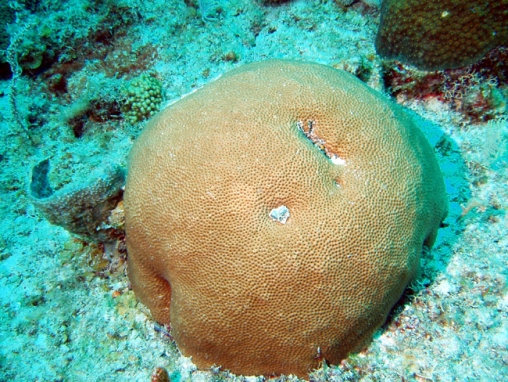In another positive spin on climate change, researchers from Northeastern University’s Marine Science Center and the University of North Carolina at Chapel Hill have discovered one species of coral that can actually benefit from a rise in ocean acidification. “The amount of change that would typically occur in about 10 million years is being condensed into a 300-year period,” Co-author and associate professor at Northeastern Justin Ries says. “It’s not the just the magnitude of the change that matters to the organisms, but how quickly it is occurring.” 
Siderastrea siderea courtesy of coralpedia.bio.warwick.ac.uk
“The study showed that this species of coral (Siderastrea siderea) exhibited a peaked or parabolic response to both warming and acidification, that is, moderate acidification and warming actually enhanced coral calcification, with only extreme warming and acidification negatively impacting the corals. This was surprising given that most studies have shown that corals exhibit a more negative response to even moderate acidification. Ries added. “Acidification of the surrounding seawater is certainly important for marine organisms, but what is equally as important — perhaps even more important — is how the chemistry of their internal calcifying fluid responds to these changes in seawater chemistry.” Read more here!










0 Comments